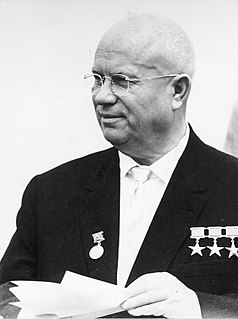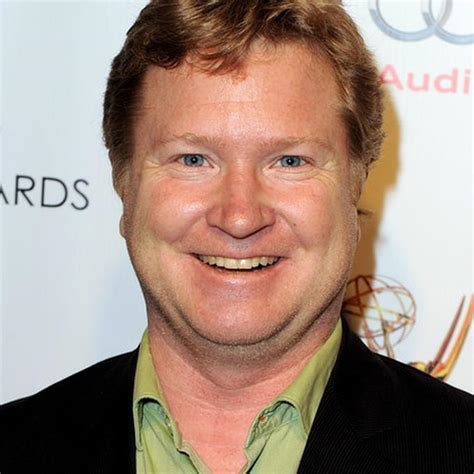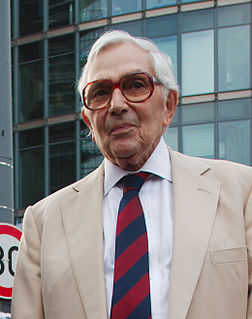A Quote by Enoch Powell
It is advertising that enthrones the customer as king. This infuriates the socialist...[it is] the crossing of the boundary between West Berlin and East Berlin. It is Checkpoint Charlie, or rather Checkpoint Douglas, the transition from the world of choice and freedom to the world of drab, standard uniformity.
Related Quotes
In 1995, I went to Berlin to acting school, which was in East Berlin. And I decided to live in the east, because I thought if I go to West Berlin, I might as well stay in Stuttgart in the West because I know all the signs, and the way we deal with each other, and I wanted to get to know the other part of Germany and how they lived and what their history was and their biography. In that period of time, I learned a lot, and it helped me a lot.
There are many people in the world who really don't understand, or say they don't, what is the great issue between the free world and the Communist world. Let them come to Berlin. There are some who say that communism is the wave of the future. Let them come to Berlin. And there are some who say in Europe and elsewhere we can work with the Communists. Let them come to Berlin. And there are even a few who say that it is true that communism is an evil system, but it permits us to make economic progress. Lass' sie nach Berlin kommen. Let them come to Berlin.
You have two options when you approach a hostile checkpoint in a war zone, and each is a gamble. The first is to stop and identify yourself as a journalist and hope that you are respected as a neutral observer. The second is to blow past the checkpoint and hope the soldiers guarding it don't open fire on you.
Capitalism has created the highest standard of living ever known on earth. The evidence is incontrovertible. The contrast between West and East Berlin is the latest demonstration, like a laboratory experiment for all to see. Yet those who are loudest in proclaiming their desire to eliminate poverty are loudest in denouncing capitalism. Man's well-being is not their goal.
Chocolate and candy. That's what we brought in to our friends. We worked in East Berlin with other artists who were smuggled out to come work in the Western Bloc. It was extraordinary because people in East Berlin just wanted to know what was happening. Music. Fashion. The news. All of the things we get every day.


































